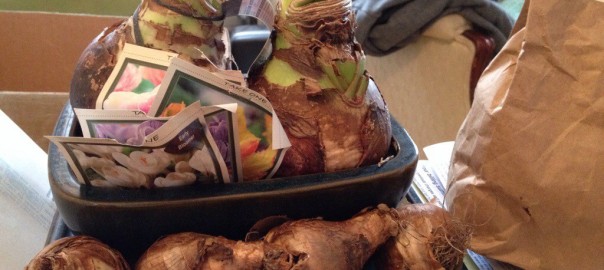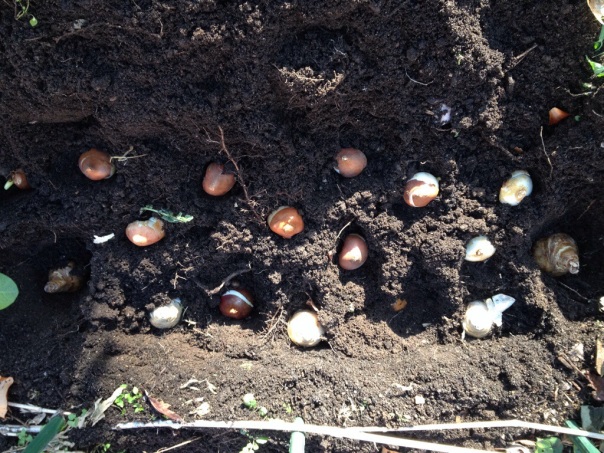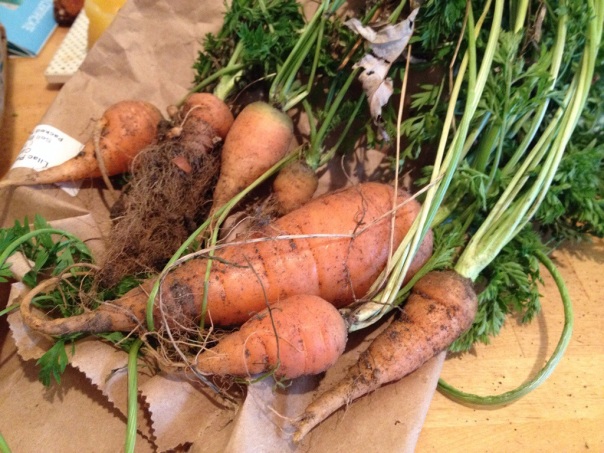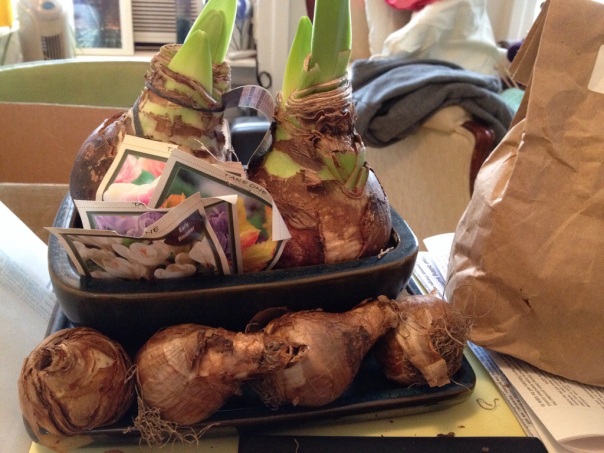 Are you ready for life in the future? Are you really ready for the-future-that-is-now? Find out by reading at least the early chapters of Making Home: Adapting Our Homes and Our Lives to settle in Place, which is by far the most fun book about the apocalypse I’ve read yet! Seriously. Let me start with that assurance, so you don’t get thrown off by this wild quote from its author, Sharon Astyk, which is what I really wanted to use for my lede:
Are you ready for life in the future? Are you really ready for the-future-that-is-now? Find out by reading at least the early chapters of Making Home: Adapting Our Homes and Our Lives to settle in Place, which is by far the most fun book about the apocalypse I’ve read yet! Seriously. Let me start with that assurance, so you don’t get thrown off by this wild quote from its author, Sharon Astyk, which is what I really wanted to use for my lede:
“I admit I find it enormously difficult to imagine a scenario in which the US does not collapse on some level—in nearly every available measure, it is in danger of doing so.”
It’s my belief that we’re not scrambling about like rats on a sinking ship on climate change because the enormity of the climate-change bogeyman — catastrophe, apocalypse, doom, collapse — is both too big and too hard to believe. Won’t happen, we think. We watch movies about phenomenal disasters and experience catharsis and comfort to witness an extreme outcome that seems to outstrip any possible horror we might face in real life. (I don’t think that’s my idea, but I have no idea who to credit for it.)
But what if “collapse” meant something different? Something less Bruce Willis and more Cormac McCarthy? The Soviet Union collapsed. Cuba collapsed. New Orleans collapsed. Collapse, in Astyk’s book, means (I’m quoting, in abridged form):
- People get really mad at their government.
- Crime goes up while police protection is less available or privatized
- Everyone gets poorer fast.
- Cost and attainability of food becomes an issue.
- Services and utilities are widely disrupted.
- People are pushed together.
Right. That could definitely all happen has been happening. Collapse is more of a continuum of degradation than a fireworks show.
So Making Home is really a book about how to set yourself up so that a rougher, less secure society with expensive or hard-to-get food and expensive or frequently-interrupted utilities and services, doesn’t throw you into a personal crisis at every bump.
Which is what happens to us, right? We’re not set up to lose access to food and electricity and gas and water, so when natural disasters — earthquakes, hurricanes, blizzards — come our way, we go into panic mode, stockpiling at the grocery store and filling our bathtubs with water. Our (for the general population living in better-than-poverty conditions) lifestyle and society is built so well, has been so reliable, that we’re ill-equipped for its disfunction.
A really easy example from my own experience? In the United States, I never worry about how much cash I have. I can use my plastic cards at stores or use the plastic to get the cash. Power doesn’t go out citywide, banks don’t run out of cash. When I visited Argentina, I had a few close calls where I dashed from bank to banks, because the ATMs were out of cash.
The most fun part of Making Home is the Triage section. The book assesses the relative merits of staying where you are and getting prepared to deal with more instability versus picking a new place to hunker down. I found myself surprised to see that no one region of the country or type of environment is advocated over another. It’s about your own personal calculation.
But it’s awfully fun to read her take on the pros and cons of choosing the city, the suburbs, or the country. She pulls no punches. “Do you drink a log of milk?” she asks of the potential country dweller. “Well, I hope you plan to milk each morning,” because you are not getting milk from Ye Old General Store.
If you’re a city dweller who “presently enjoys all the benefits of urban life with extended trips into the countryside to reconnect with nature, ask yourself how you will like doing without these — in August, during a heat wave.”
“It is useful, I think, to decide which sort of person you are, and thus, where you will be happy—out in the country where you can get drunk and shoot deer through the unopened windows of your trailer or in the city where you can get drunk and lecture a passerby on the evils of jaywalking or public urination.”
See, doesn’t the collapse sound fun? It’s like rated-R summer camp, forever.
The book then begins to outline all the ways Astyk thinks we will manage our food, income, and comfort (you’ll be wearing a lot of sweaters in winter and sharing that wide mattress with more bodies). She’s no mere philosopher—she manages a homestead complete with husband, children, crops, and animals in New York (she picked “the country”).
It’s plenty interesting, but that’s about when I got a notice from the library that the book was on hold and I couldn’t renew it anymore. So that’s where I leave it, and you!
I’ll end, though, with its ending, for another bit of fun. I love a good index — it’s like a old-fashioned word cloud, giving you an at-a-glance flavor of its contents. It can be suggestive, evocative, a list-poem. Here is a taste of this book’s index entries, which really tickle me:
- Iceland
- immigrants
- indebtedness
- informal economy
- infrastructure
- ironing
- Jerusalem artichokes
- job loss
- Kale
- knives
- medical issues
- New Orleans
- parsnips
- pass-down economy
- peak oil
- pepper spray
- pet food
- Poem of Difficult Hope
- refrigerators
- refugees, preparing for
- relationships
- rhubarb
Well, on to the next read, I suppose! I think it’s going to be Please Kill Me, an oral history of punk music. I’m expecting it’ll be more of an upper.

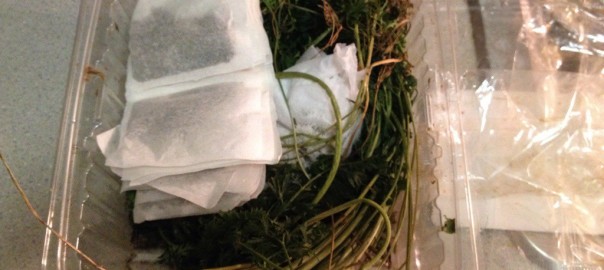
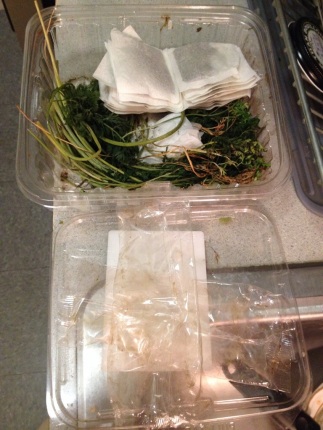 Then I had that vision of my old apartment, with a four years younger me, trying the tea I was so excited about, and not, to be honest, really loving the flavor. A little too fruity, a little artificial tasting. I hadn’t wanted another cup in four years. I hadn’t opened the packet to serve it to a guest. It was time to let go.
Then I had that vision of my old apartment, with a four years younger me, trying the tea I was so excited about, and not, to be honest, really loving the flavor. A little too fruity, a little artificial tasting. I hadn’t wanted another cup in four years. I hadn’t opened the packet to serve it to a guest. It was time to let go.

